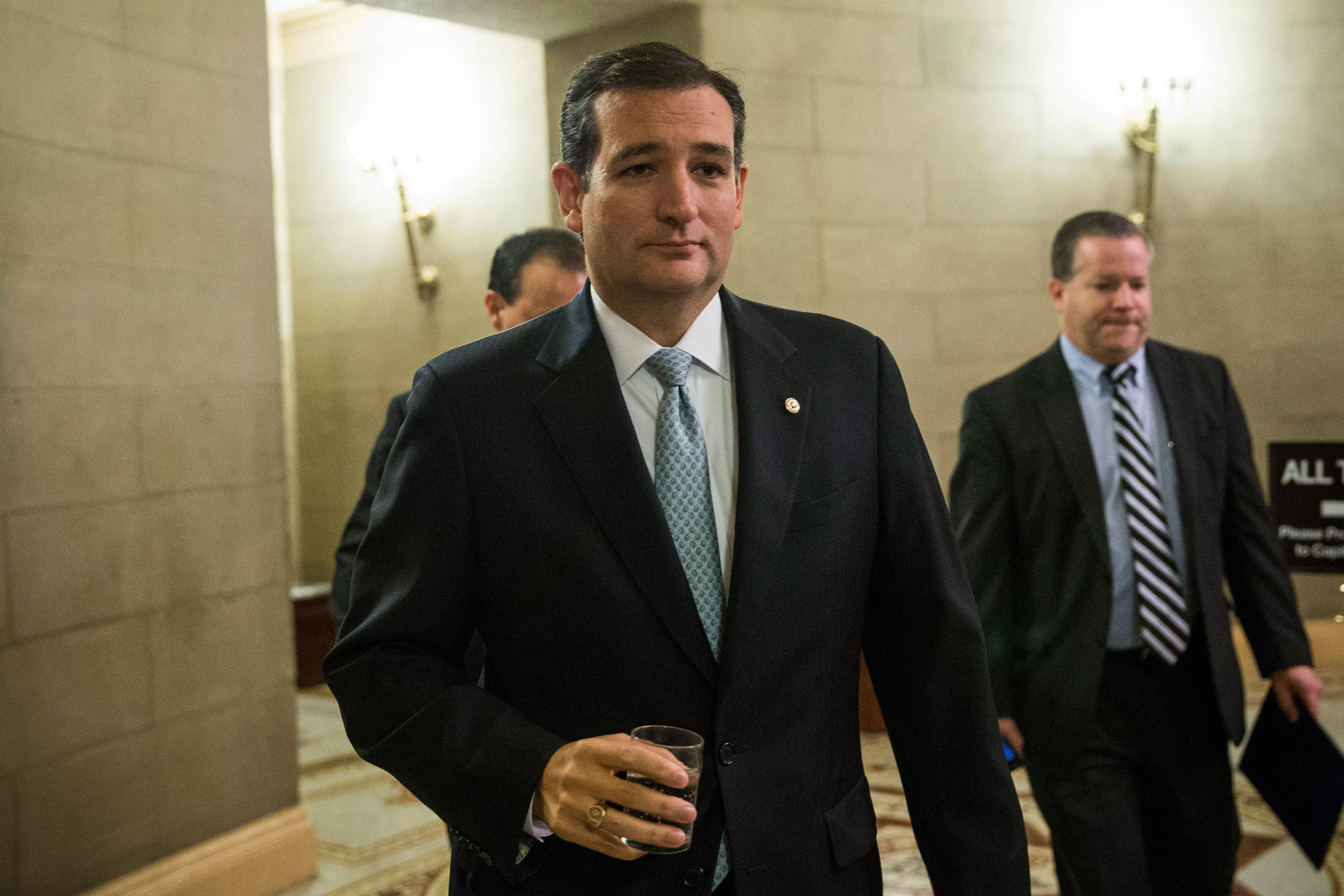As Ted Cruz stumps in Texas and tells friends (at a “Tea Party homecoming”!) that his fellow senators are the enemies of freedom, Marin Cogan has a fun piece about the lazy media profiles that helped Cruz get here. She digs up this Mark McKinnon classic from August 2012:
To legislate effectively and resolve the crises we face as a nation, Senator Cruz will have to offer compromise and action, not just heat and rhetoric. That is a challenge bigger than Texas.
Actually, I read that as McKinnon trying to coax Cruz, already a phenomenon, into joining the No Labels party. (What drinks do we think they’d serve at that party?) Didn’t work, but it was all McKinnon could do, as a columnist. There was plenty of glib star-search analysis of Cruz, but plenty of reporters, by actually talking to the guy, got him right. Kate Zernike, who covered the Tea Party at its height, captured Cruz basically promising that he would arrive in the Senate as a more eloquent Jim DeMint.
I ask people: How many people inspire you? How many people are effectively making the case? If you really believe that we’re fighting to save our country, how many people are effectively making the argument? What I think is at stake in 2012 is whether the five or six strong conservatives elected to the Senate in 2010 become 10 or 12. And if that happens, it will fundamentally shift the character of the Senate. It will shift the balance.
In those sentences you can hear the senator who would slug ineffectively* through a series of fights then return home to pronounce moral victory and call for yet more conservative wins. So was the media naive to call Cruz the Next Barack Obama, unseating previous Next Barack Obama Marco Rubio?
Sort of. Obama arrived in the Senate, in 2005, facing conditions nearly identical to Cruz’s. His party had just lost a winnable-looking election; it was down to 45 Senate seats. Cruz serves alongside Minority Whip John Cornyn; Obama served alongside Minority Whip Dick Durbin. Obama’s response to this was to become a reliable Democratic vote and to take advantage of George W. Bush’s 2005 overreach (Social Security privatization—remember that?) but otherwise maintain a moderate profile. The result: By the time he was winning the Democratic nomination, Obama had an overwhelming, +20 or more favorable rating.
Cruz took a completely different approach, jumping in front of the mic stand for whatever conservative cause seemed important at any given time. This, I think, was an example of the Confidence Gap between liberals and conservatives. Liberals know they’re outnumbered in America, that only 20 percent or so of voters consider themselves reliably liberal, and as a result they reward those who are able to talk moderate but government left. Conservatives know they outnumber liberals, and are confident they can win a national election by driving to the right.
*Not that the Republicans’ minority status in the Senate helped any.
